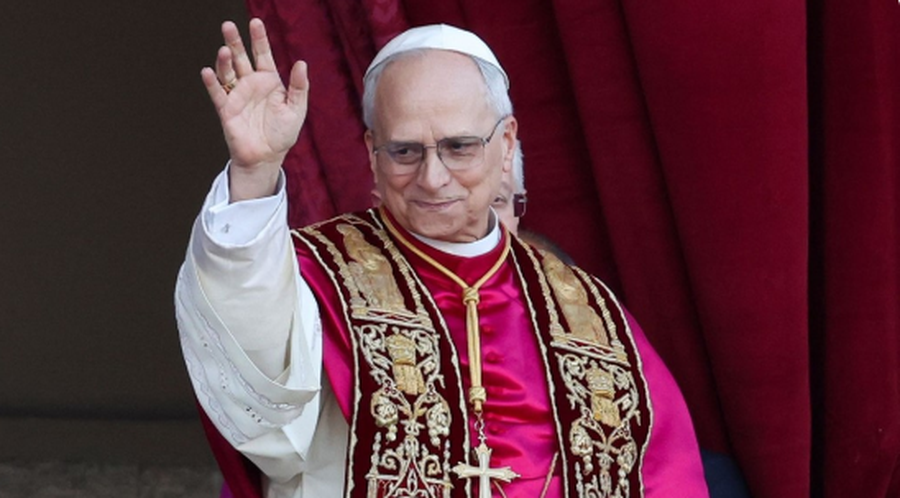
In the Lodge of Blessings, Robert Francis Prevost, the newly elected Pope Leo XIV, did not appear alone. He wanted Pietro Parolin to be by his side.
He was the favorite candidate on the eve of the Conclave and plays the role of the candidate "who enters as Pope" and risks, as actually happened, "coming out as a cardinal."
But the fact that they wanted him near them, before the Urbi et Orbi blessing, was the clearest sign that there was not, and will not be, any animosity between the two. A message to tell the world, in a clear way, that not only is Francis' foreign policy and his challenges of dialogue with China and the Global South inviolable. But also that the "disarmed and disarming peace", hoped for in Prevost's first speech, will begin precisely from the Curia.
Insiders speak of a Conclave that opened with the vote count showing a significant number of preferences for Parolin, but not enough to reach a solid consensus capable of responding compactly to the divisions outside and inside the Church. It could not end like this. The first to dislike him was Parolin himself. Thus, yesterday, within the walls of the Vatican, there were those who whispered about his generous step back with the preferences directed in favor of the rising candidate, Prevost. And there were also those who speculated that Parolin's step back was the cause of the great delay with which the black smoke appeared on the first day. The reconstructions were difficult to verify in secret, under the threat of excommunication, which had been imposed on the Cardinals.
However, what is certain is that Prevost, a missionary for twenty years in Peru, where he also founded a parish, met Pope Francis during one of his trips and was immediately appointed cardinal and president of the Pontifical Commission for Latin America, managed to take advantage of the secret clash that in this Conclave divided the cardinals of North America from those of South American countries. But he was also helped, and not a little, by the echo of his position against Donald Trump's decision to cancel over 90 percent of international aid managed by USAid, defined as a "criminal decision".
French-speaking African cardinals also looked upon him with sympathy, as the son of parents who emigrated from France: Louis Marius Prevost, of Italian-French origin, and Mildred Martínez, of Spanish origin.
And the entire wing of cardinals, more attentive to tradition, surely viewed him with greater goodwill than the hypothesis of a foreigner, perhaps among the last to be appointed, in the most distant corners of the earth, by Pope Bergoglio. Being also able to appreciate the excellent mediation skills of Prevost demonstrated at the last synod, where he managed to bring the conservative bishops to an agreement with the German bishops, who demanded, for example, the diaconal, if not presbyteral, ordination of women by the traditionalists.
Characteristics that have made the cardinal, who graduated in mathematics, theology and canon law, be identified not as a simple follower of Pope Francis, but as a man capable of carrying out the reforms he did not have the strength to complete. But without tears.
And the name chosen for his papacy has already demonstrated this. The Prevost will be the successor of Saint Leo the Great, who defended Catholic orthodoxy and confronted Attila by convincing him not to conquer Rome. But above all, he will follow in the footsteps of Leo XIII, the Pope of the encyclical Rerum Novarum, which addressed the social question and the rights of workers and gave life to the social doctrine of the Church, consolidated by the Second Vatican Council and iconized by the famous phrase of Paul VI, "beware of the wrath of the poor", also addressed to the church hierarchs.
But there is more. Leo XII was also a Pope who showed great openness and interest in foreign peoples. Father Giulio Albanese, a missionary of Comboni nationality, recalls: "He was the first Pope to receive, on March 3, 1880, a group of Native Americans, who arrived in Rome with Buffalo Bill and set up camp in the Prati neighborhood not far from Castel Sant'Angelo and were then received by the Pope in St. Peter's Basilica." (A2 Televizion)











